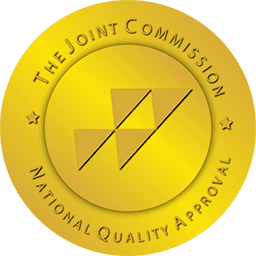- Home
- Treatment
Treatment Designed for You.
Get in touch with Absolute Awakenings today and begin your journey to long-term healing & recovery. - What We Treat
An Experience in Healing
Get in touch with Absolute Awakenings today and begin your journey to long-term healing & recovery. - About
The Rehab You've Been Looking For
Get in touch with Absolute Awakenings today and begin your journey to long-term healing & recovery. - Tour
- Resources
Don't Wait Another Day.
Get in touch with Absolute Awakenings today and begin your journey to long-term healing & recovery. - Admissions
The Rehab You've Been Looking For
Get in touch with Absolute Awakenings today and begin your journey to long-term healing & recovery. - Contact
(866) 627-0196
3000 NJ-10, Morris Plains, NJ 07950
admissions@absoluteawakenings.com
Schedule a Tour Now
Get in touch with Absolute Awakenings today and begin your journey to long-term healing & recovery.
Begin Your Journey Now
Begin Your Journey Now
- Home
- Treatment
Treatment Designed for You.
Get in touch with Absolute Awakenings today and begin your journey to long-term healing & recovery. - What We Treat
An Experience in Healing
Get in touch with Absolute Awakenings today and begin your journey to long-term healing & recovery. - About
The Rehab You've Been Looking For
Get in touch with Absolute Awakenings today and begin your journey to long-term healing & recovery. - Tour
- Resources
Don't Wait Another Day.
Get in touch with Absolute Awakenings today and begin your journey to long-term healing & recovery. - Admissions
The Rehab You've Been Looking For
Get in touch with Absolute Awakenings today and begin your journey to long-term healing & recovery. - Contact
(866) 627-0196
3000 NJ-10, Morris Plains, NJ 07950
admissions@absoluteawakenings.com
Schedule a Tour Now
Get in touch with Absolute Awakenings today and begin your journey to long-term healing & recovery.
Motivational Interviewing Therapy in New Jersey
Motivational Interviewing
- Written By: Amanda Stevens, B.S.
- Reviewed By: Dr. Po-Chang Hsu, M.D., M.S.
- Updated:
- Published:
- Reading Time: 10 minutes
- Absolute Awakenings Treatment Center
- NJ Mental Health and Addiction Treatment Programs
- Therapies
- Motivational Interviewing
- Absolute Awakenings Treatment Center
- NJ Mental Health and Addiction Treatment Programs
- Therapies
- Motivational Interviewing
Discover how motivational interviewing therapy in NJ can help you find lasting change.
overcome life's challenges
Pivot the Trajectory of Your Life with Motivational Interviewing in NJ
Sometimes, we know exactly what we need to do. And yet, the drive to make it happen eludes us. Whether you’re struggling with implementing coping skills to combat a mental health disorder treatment or looking to maintain addiction treatment, Motivational Interviewing Therapy can help you make positive changes in your life.
Results aren’t simply about behavior change. The spirit of Motivational Interviewing is about developing a strong sense of self-efficacy and living a life that aligns with your own personal values and affirmations.
But trying to do this all on your own can prove an impossible task. We can help you develop the motivation you need today to create the life you truly desire tomorrow.
trauma-informed, therapeutic solutions
Our Therapies
-
Cognitive Behavioral Therapy
-
Dialectical Behavioral Therapy
-
Motivational Interviewing
-
Acceptance & Commitment Therapy
-
Interpersonal Therapy
-
Family Therapy
-
Art Therapy
-
Yoga Therapy
-
Muay Thai
-
Music Therapy
-
Hypnotherapy












The road to recovery for someone struggling with alcohol or substance use often brings the family along. Family Therapy is a safe space for every member of the family to be heard, feel seen, and work through their challenges as a group. Here, there is room for the whole unit to be supported and pursue healing, not only the primary client.






Muay Thai isn’t just for self-defense and movement. It’s also an evidence-back therapeutic outlet that promotes stress relief, focus, and personal discipline. All of these attributes make it a highly-effective therapy technique for drug and alcohol dependence.


Music Therapy is another form of Experiential Therapy that actively engages the client in their treatment with a hands-on approach. Activities range from listening, writing, and playing music under the direction of a skilled provider. Don’t worry, you don’t need to know how to play an instrument in order to participate.


Hypnotherapy is nothing like a hypnotist on a stage. It is, however, an evidence-based and highly-effective therapeutic intervention. In Hypnotherapy, the therapist helps to create a state of increased attention and concentration. Inducing a state of hypnosis gives a sense of heightened awareness and allows the client to process experiences from a detached perspective.
what is motivational interviewing?
Motivational Interviewing Defined
First described in detail in Miller and Rollnick’s “Motivational Interviewing: Helping People Change,” Motivational Interviewing Therapy is an evidence-based and patient-focused therapeutic technique that works to alter ambivalent behavior. One can have the most well-intentioned desires and plans, but if there is a lack of motivation, they may never come to pass.
Implementing motivational interviewing work enhances the client’s ability to identify undesirable behaviors, define the target behavior, and deploy their own motivations to bring about the desired change.
Key elements of MIT include engaging with the patient on their struggles, focusing on the more desirable behavior change, evoking change talk geared toward forward progress, and planning action steps.
From individual counseling sessions and evoking change talk to connecting concepts with the client’s values, Motivational Interviewing Therapy helps one to overcome indecision and inaction to develop intrinsic motivation to do what they know they should or must.
How Can Motivational Interviewing Help?
The effectiveness of Motivational Interviewing Therapy, also known as motivational counseling or Motivational Enhancement Therapy (MET), has been proven for a multitude of diagnoses and addictions.
Substance abuse is an unhealthy and undesirable behavior. And yet, the nature of addiction and dependence makes it increasingly difficult to cease and overcome. Motivational Interviewing Therapy is an effective modality for drug use, alcohol use, and various forms of Substance Use Disorder. It helps the patient connect their current dependent state to their desired future state and empowers them to visualize the actions required to get there.[1] This could be detox, Partial Care, Outpatient programs, or simply maintaining their path during aftercare and recovery.
Overcoming mental health concerns or co-occurring disorders is not a simple undertaking. It requires professional guidance and experienced treatment. Motivational Interviewing Therapy is an effective solution for helping people identify undesirable behaviors, understand the necessary steps to change them, and develop the motivation to take action.
This process is beneficial for those suffering from Obsessive-Compulsive Disorder (OCD), depression, and anxiety. At Absolute Awakenings, we believe that each patient’s journey is unique and requires an individualized approach to ensure their motivation to overcome and recover is met.
Outside the realm of Substance Use Disorder and mental health, Motivational Interviewing has also been effective in the physical medicine and healthcare field. It helps healthcare providers promote the patient’s adherence to prescribed treatment regimens, such as smoking cessation, and maintain a healthy course and positive lifestyle outcome. Diagnoses such as asthma, diabetes, hyperlipidemia, hypertension, and heart disease have all been successfully supported by MIT.[2] We know that so many health concerns can be negatively impacted by mental health and substance abuse. Leveraging the effectiveness of MIT is a holistic and beneficial way to ensure all of the patients are treated and recovering.
How does motivational interviewing work
The Core Principles of Motivational Interviewing
William R. Miller developed some initial models for Motivational Interviewing Therapy, later collaborating with Stephen Rollnick to refine the MI Technique.
There are several core principles at the center of Motivational Interviewing Therapy that can be divided into four categories.
These facets of this counseling style represent how a session may be structured as well as how the overall direction of treatment will be planned.[3]
We Accept With Most Major Insurance
If you or a loved one is ready to get help but finances are holding you back, give us a call. We can work with your health insurance provider.














The last thing our expert therapists will do is express any form of ridicule or judgment. Client-centered healing and a therapeutic relationship are the focus of all aspects of our treatment.
To ensure this is accomplished, the Motivational Interviewing therapist will display acceptance and encourage participation in order to develop rapport. They will use reflective listening skills to build a foundation for discussion.
At this stage, most participation from the patient or client will be ambivalent.
Developing discrepancy involves connecting the current state (the undesirable behavior) with the desired state (the target behavior) and revealing the conflict between the two. The motivation to make the necessary changes is driven by the comparison and the desired lifestyle outcome.
In turn, this lowers your stress and anxiety levels and makes resolving conflict with others easier, leading to more enjoyable and productive relationships.
This core principle is intended to reduce the potential for a communication breakdown between the counselor and the participant, facilitating the therapeutic relationship. Again there is no judgment or coercing, merely a presentation of the facts and expertly poised questioning.
Those struggling with mental health concerns, substance abuse, or even physical health issues must be their own best resource for discovering the answers or solutions to their struggles for them to maintain recovery. Any resistance presented should not be directly opposed, but rather the approach should be modified to ensure client autonomy.
Self-efficacy refers to an individual’s personal success in their recovery journey. As much as they’re able to be self-sufficient and maintain the capability to change the undesirable behavior is representative of their individual self-efficacy. Once they believe in their own abilities, their chances of lasting success will multiply. If the client feels incapable, unequipped, or fearful, their motivation to change will be severely inhibited. Ensuring the patient is empowered to direct the path of their own future, the more likely they are to maintain their recovery.
Stories of Hope & Healing
Hear from Our Alumni
A jewel among many local drug and alcohol rehab treatment centers in Denville, New Jersey, the care and treatment options you’ll receive at Absolute Awakenings is second to none. From not knowing if you’ll ever feel in control again to being confident in the path you’re on, we are invested in YOU every step of the way.
Answers to Common Questions About Motivational Interviewing in NJ
Motivational Interviewing Therapy FAQs
This counseling approach varies greatly depending on the severity of the patient’s diagnosis and current state of personal autonomy. For some, it may only require a few sessions, whereas others may require Motivational Interviewing Therapy incorporated into a longer-term treatment plan.
Motivational Interviewing Therapy is a broad-spectrum therapeutic approach effective for a wide range of diagnoses or challenges. Motivational Enhancement Therapy is specifically designed to emphasize personal assessments, feedback processing, and change plans. [4]
When addressing the participant’s undesirable behavior, the Motivational Interviewing Therapist or health professional will use some or all of the following motivational interviewing techniques as they walk through the concerns with the participant:
Open-Ended Questions
Open-ended questions allow the participant to dialog on the topic and open up, rather than begin in a defensive posture.
Reflective Listening
Reflective listening shows the participant that the counselor is paying attention to their words, feelings, concepts, desires, and ideas by repeating them back. It requires an authentic display of empathy and skillful reframing or amplifying of what they’re communicating.
Affirmations
Affirmations give valuable feedback to the participant without giving direct praise. It focuses attention on their actions and acknowledges them in a positive light.
Summarizing
Summarizing is a counseling technique that serves to direct the conversation in the way it should go. Whether it’s transitioning to a new topic or closing the book on an old one, summarizing refocuses communication.
Eliciting Self-Motivational Statements
This phase is critical to the process of change with Motivational Interviewing. Here is where the participant embraces an understanding of the undesirable state and is able to express concern on their own behalf. Statements such as “This is a problem I need to take seriously” or “I’m concerned X will happen if I don’t stop/start” are good examples of eliciting self-motivational statements.
These indicate the participant understands the current state and desired state are not aligned and that they need to take action to change it.[5]
Expressing empathy is the number one technique in this modality. A trusted and genuine connection must be developed. This helps the participant not to feel the need to be overly defensive and encourages them to participate willingly.
work towards lasting change
Activate True Behavioral Changes with MI Therapy in New Jersey
Life-altering challenges require life-changing commitment. To get there, the proper motivation must be developed and nurtured. If you or a loved one is finding it difficult to muster the adequate motivation to initiate lasting behavior change, Motivational Interviewing Therapy in New Jersey could be the solution you’ve been waiting for. Start equipping yourself today to build a healthier tomorrow.
- https://store.samhsa.gov/sites/default/files/SAMHSA_Digital_Download/PEP20-02-02-014.pdf
- https://pubmed.ncbi.nlm.nih.gov/16643702/
- https://health.mo.gov/living/healthcondiseases/chronic/wisewoman/pdf/MIPrinciplesofMI.pdf
- https://www.ncbi.nlm.nih.gov/pmc/articles/PMC3349358/
- https://www.improvingmipractices.org/application/files/5215/9777/8873/BHDDA_M.I._Basic_Components_for_Effective_Communication_4.30.2020_approved.pdf
Begin Your Journey to Long-Term Healing
Make the Call. Change Your Life.
Yes, You Can Get Your Life Back...
With our trained and compassionate professionals in your corner, freedom can be yours. All it takes is you choose yourself. Choosing a better tomorrow.
© Copyright 2024. All Rights Reserved. AATC.
- Terms & Conditions
- Privacy Policy



